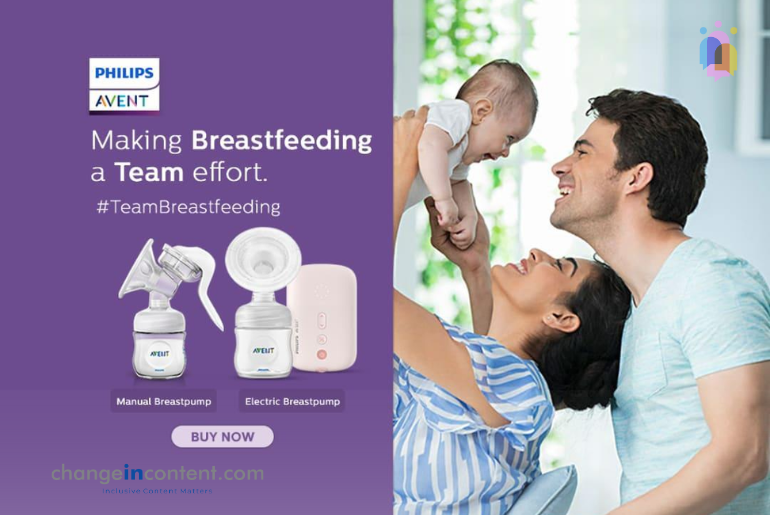“Breast is best” is a phrase mothers hear long before their child is born. But no one talks about the sleepless nights, spilt milk, bites, scratches, clogged ducts, and all the frustration and exhaustion that often come with breastfeeding. Moreover, society frequently dismisses the option of pumping, creating a stigma that pumping is not breastfeeding. The latest Breastfeeding campaign by Philips Avent for Breastfeeding Week 2024 normalises the use of breast pumps. Additionally, it draws attention to the often challenging, lonely journey of breastfeeding. Because, let’s face it, sometimes “breast is best” is just an optimistic slogan that doesn’t tell the whole story.
Breastfeeding campaign by Philips Avent: Supporting breastfeeding mothers
Philips has launched a new campaign video for Breastfeeding Week 2024 as part of the #ShareTheCare initiative. The video starts with three mothers holding their babies and sharing their breastfeeding stories. In separate rooms, their husbands and families watch a live feed, listening closely as the mothers talk about the joy and importance of breastfeeding. They mention the strong bond with their babies and the health benefits of breast milk. But they also honestly discuss the challenging parts like getting the baby to latch correctly, feeling sore, and dealing with the physical strain.
As the mothers speak, the video shows the husbands and families reacting with empathy and frustration, wishing they could do more to help. The scene ends with a husband surprising his wife with a Philips Avent Electric Breast Pump, showing that “sharing the care” isn’t just about emotional support. It can also mean giving practical help to make things easier.
The breastfeeding campaign by Philips Avent also highlights the importance of a better support system for mothers by focusing on the importance of shared caregiving. Toward the end of the ad film, we see the mothers relaxing more easily with the help of the breast pump. After pumping, the fathers can feed the baby and handle nighttime feeds, allowing the mothers to take a well-deserved rest. This support is especially beneficial for mothers who need to return to work or be away from their babies for extended periods.
Breastfeeding campaign by Philips Avent: The unseen gap
Philips Avent’s latest campaign showcases products designed to make breastfeeding more manageable and comfortable, helping mothers care for their babies more effectively. Although highlighting pumping is a positive move, the campaign could be more inclusive. It still needs to address a broader range of experiences, including those of transgender and non-binary parents, to truly reflect the diverse realities of all caregivers.
While the ad introduces the option of pumping to many mothers, it overlooks whether these high-tech solutions are accessible to everyone. In trying to showcase modern conveniences, the campaign seems to forget that inclusivity and accessibility are just as important as innovation.
It is also time to stop acting like fathers should remain utterly clueless about the struggles of motherhood. In the ad, the father only learns about the challenges of breastfeeding through a live feed, not from talking directly with the mother. This approach is a problem because it suggests that fathers don’t need to understand or be involved until someone else tells them.
The campaign missed a chance by not showing the husband actively supporting his wife before the baby arrives or having the wife talk openly about her problems with him. Showing this kind of direct communication would have sent a much stronger message that it’s okay to discuss the challenges of motherhood openly and that asking for help is perfectly normal.
The final thoughts
Philips Avent’s campaign for Breastfeeding Week 2024 effectively brings attention to the practical support that breast pumps can offer. However, the campaign falls short in a few subtle but significant ways. It could benefit from a broader inclusion of diverse experiences, such as those of transgender and non-binary parents. Additionally, by portraying it as usual for fathers to be passive observers, the campaign misses an opportunity to show how fathers can be actively involved from the start.
Disclaimer: The views expressed in this article are based on the writer’s insights, supported by data and resources available both online and offline, as applicable. Changeincontent.com is committed to promoting inclusivity across all forms of content, which we define broadly to include media, policies, law, and history—encompassing all elements that influence the lives of women and gender-queer individuals. Our goal is to promote understanding and advocate for comprehensive inclusivity.


